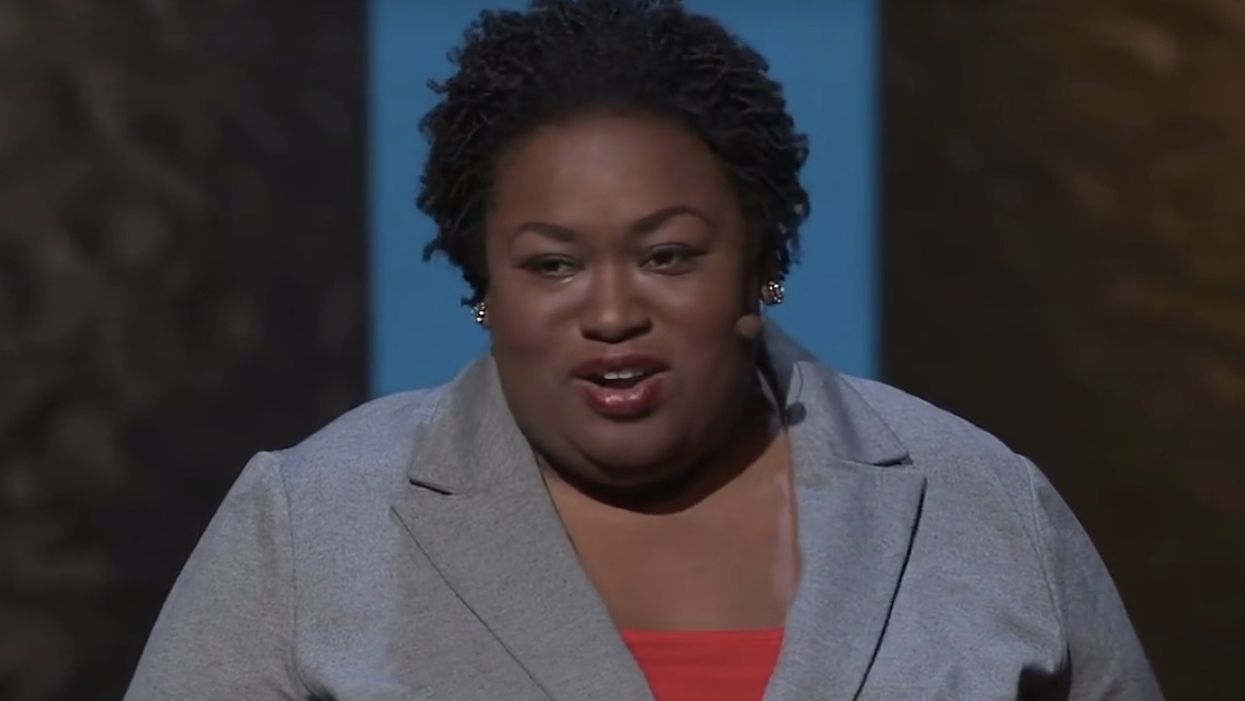
Image source: YouTube screenshot

'This idea that black people have had no impact on history is one of the foundational ideas of white supremacy'
Brittney Cooper — an associate professor of women's and gender studies and Africana studies at Rutgers University who's outspoken on racial issues — said that if time itself "had a race, it would be white."
In fact, she added, "white people own time."
WSIU-FM — a NPR affiliate — posted its interview with Cooper on Friday, pulling her latter words from a TED talk she gave a few years ago to help answer the question highlighted in the interview title: "How has time been stolen from people of color?"
More from Cooper's TED talk:
Typically, we talk about race in terms of black and white issues. In the African-American communities from which I come, we have a long-standing multigenerational joke about what we call CP time or colored people time. Now, we no longer refer to African-Americans as colored. But this long-standing joke about our perpetual lateness to church, to cookouts, to family events and even to our own funerals remains. I personally am a stickler for time. It's almost as if my mother, when I was growing up, said, we will not be those black people. So we typically arrive to events 30 minutes early. But today I want to talk to you more about the political nature of time; for if time had a race, it would be white. White people own time.
She explained to WSIU that her single mother — a secretary — worked hard to "create a pathway into the middle class." And that meant she "was on very regimented time" and put a premium on "showing up and being professional. It meant speaking great corporate English, in many cases."
Cooper added to the station that her "educational contexts ... were predominantly white," and that "we couldn't be late because we were trying to project a sense of excellence and that we were about business and that I should be taken seriously as a student and that she should be taken seriously as a parent."
She offered to WSIU the "racialized idea" that in the Western framework "black and brown people are seen as a lag on social progress," which "becomes the pretext often to do all manner of violence."
More from Cooper's TED talk:
This idea that black people have had no impact on history is one of the foundational ideas of white supremacy. It's the reason that Carter G. Woodson created Negro History Week in 1926. It's the reason that we continue to celebrate Black History Month in the U.S. every February. Now, we also see this idea that black people are people either alternately outside the bounds of time or stuck in the past in a scenario where, much as I'm doing right now, a black person stands up and insists that racism still matters, and a person — usually white — says to them, 'Why are you stuck in the past? Why can't you move on? We have a black president. We're past all that.'
She added to WSIU that "if you're white in the U.S. context, typically you're taught that time is linear, that every day is a progression beyond the past, that we are not today where we were 50 years ago. But if you are African-American in this country, time doesn't exactly work that way. You are, you know, living often with the residue of past historical trauma. You are living in a present-day system that is filled with racial animus, which often is overlooked by many white Americans."
Cooper also brought up in her interview what she called the American "myth of meritocracy," which is that "you come to this country, you work hard, and anything is possible for you. And so anyone who doesn't have the things that they say they want, they don't have them because they didn't work hard."
More from her WSIU interview:
And so then, when you have to listen to people of color point out all the ways in which that isn't true, it disrupts a fundamental identity narrative for many white American folk about how they came to their prosperity. And really, it comes down to a very basic sense that - what I think white Americans hear often in conversations about race is that we are saying to them, you are bad people and everything you have you don't deserve, as opposed to saying, we are all, in this particular historical moment, born into a set of conditions that are not of our own making. Our ancestors were negotiating these conditions, and your ancestors positioned you to benefit greatly.
And so that inability to sort of both take accountability for being beneficiaries of centuries of inequality and also to recognize that no one is commenting on your personal morality but saying that America is about a system of justice. And if we're going to actually live up to our stated creed of liberty and equality and justice, then we've got to think at a systemic level about how to do that, and that might mean some personal discomfort.
Here's a clip of Cooper's TED talk:
Cooper went on the warpath against "the right's made-up God" in a 2015 Holy Week essay about "how bigots invented a white supremacist Jesus" — and later doubled down, declaring that if your Christianity is compatible with "white supremacy, homophobia, or patriarchy" then "you get called out."
She also penned a 2014 Salon piece in which she said the adopted black grandchild of former Republican presidential nominee Mitt Romney "will grow to be a black man not only in a politically conservative family with 'interesting' views on race, but also in a family that believes in a religion that openly discriminated against Blacks until the 1970s."
(H/T: The College Fix)